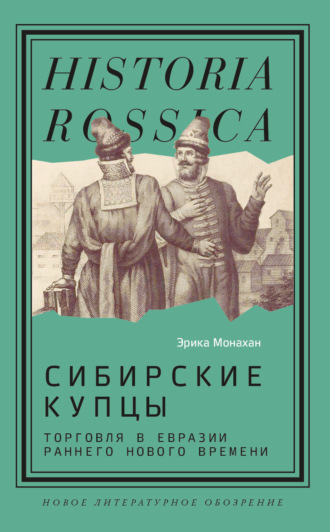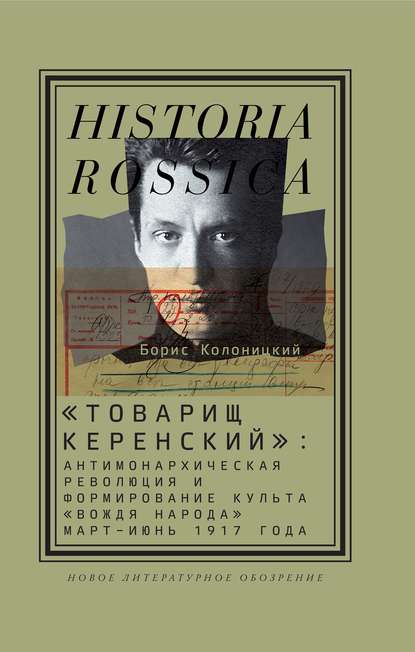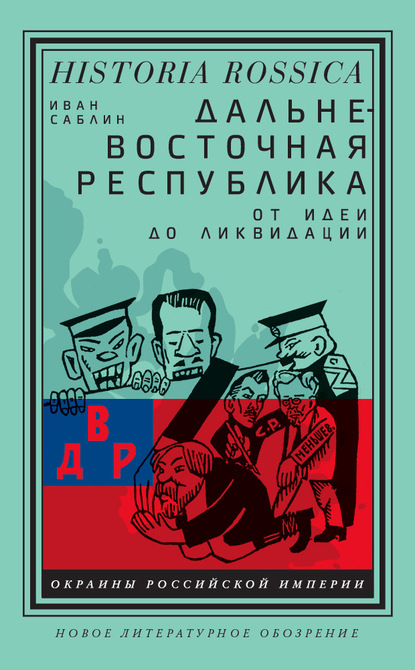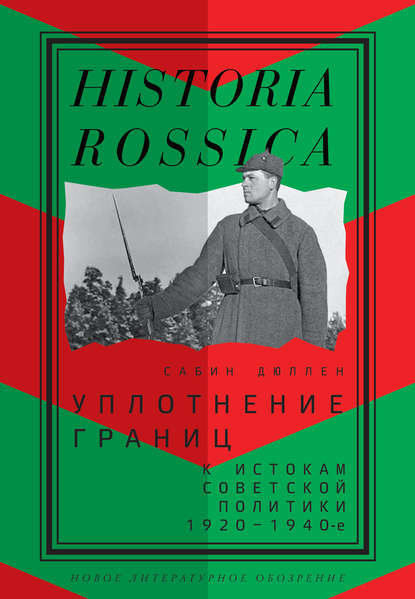
Полная версия
Сибирские купцы. Торговля в Евразии раннего Нового времени
До XVII века русско-китайскую торговлю в основном осуществляли центральноазиатские посредники201. Русские и китайские купцы, возможно, непосредственно встречались друг с другом на бухарских рынках Самарканда по крайней мере с начала XV века, а возможно, и раньше202. Осознавая перспективы дальней торговли и возможную выгоду от содействия ей, Московское государство пыталось связаться с потенциальными торговыми партнерами на востоке. Между 1608 и 1675 годами Россия отправила в Китай десять миссий, семь из которых достигли цели203. Эти миссии нуждаются в дополнительной характеристике. Московия налаживала связи с малоизвестной восточной державой, придерживаясь уместной осторожности. В большинстве случаев речь шла не об официальных государственных посольствах, а о менее масштабных путешествиях. Некоторые из них намеренно отправлялись не из Москвы и не под руководством высокопоставленных лиц; их организовывали сибирские воеводы, а во главе посольства ставили казака. Первую известную российскую миссию возглавил казак по имени Иван Петлин, прибывший в Пекин в 1618 году204. В 1620 году Москва приказала пограничным властям не устанавливать прямых контактов с Китаем. Советуя действовать осторожно и вместе с тем показывая, что среди забот государства торговля занимает весьма важное положение, документ инструктировал: «А вперед бы есте с Алтыном-царем и с Китайским, и с Мугальским государством без нашего указу ни о чем ссылки не держали, потому что те государства дальние и торговым людем ходити от них в наши государства далеко»205. И хотя решение уклоняться от контактов было близоруким, его объяснение было «пристегнуто» к взгляду на государственную оценку наличия или отсутствия торгового потенциала.
В середине века государство отправило в Китай первое официальное посольство. Во главе его стоял русский дворянин (стольник) Федор Исакович Байков206. Вперед Байкова с целью зондирования ситуации была отправлена миссия под руководством Сеиткула Аблина, бухарского купца на государственной службе. В то время как миссия Байкова (1653–1657) потерпела неудачу из‐за вопросов дипломатического протокола, успехи Аблина в торговле с китайцами убедили русского царя еще трижды направить его в Китай, в 1658 и в 1668–1672 годах. В 1675 году государство отправило в Китай молдавского дипломата и землепроходца Николая Спафария. Параллельно с этим набирала обороты частная торговля с Китаем. Гость Г. Р. Никитин в 1674 году открыл новый путь, через пустыню Гоби. Как показывают степные ярмарки, такие как у озера Ямыш (глава 5), государство не имело особого контроля над русско-китайской торговлей. Оно старалось выделить какие-то рынки для себя, вводя монополии, как, например, монополию на ревень, но в первую очередь оно просто следило за сохранением каналов торговли. Когда Россия и Китай вошли в конфликт из‐за долины Амура, Россия быстро отказалась от территориальных претензий, желая сохранить регулярную торговлю, и в 1689 году заключила Нерчинский мирный договор. Когда Россия начала организацию государственной караванной торговли, она разрешила гостям, больше всего вовлеченным в китайские дела, продолжать свою деятельность и попросила других купцов возглавить государственные караваны.
Между богатствами Сефевидов, Великих Моголов, империи Мин и российскими речными системами простирались обширные леса, степи и пустыни. В некоторых из этих пространств жили различные группы тюрко-монгольского населения. На протяжении XVII столетия Москва посылала многочисленных эмиссаров к различным степным правителям; в частности, было отправлено девятнадцать миссий в лагерь джунгарского князя Батура-хунтайджи, правившего с 1635 по 1653 год207. Москва и степные правители так часто обменивались посольствами, что Москва время от времени приостанавливала освобождение дипломатов от торговых пошлин – верный знак того, что дипломатические миссии сопровождались существенным объемом торговли. Направляла Москва посольства и в центральноазиатские ханства208. Эти послы, как и те, кто отправлялся в Персию, Индию и Китай, по дороге навещали степных властителей, принося им дары, чтобы сохранить с ними добрые отношения и воспользоваться их гостеприимством. К примеру, на пути в Китай Ивана Петлина, по его словам, приняли у себя такие князья, как киргизский князь Немей, монгольский Алтын-царь, а также царица Манчика, правившая обширной монгольской (широмугальской) землей209. Он вручал им дары, чтобы убедить их воздержаться от нападения на торговые караваны – необходимое условие надежной и выгодной евразийской торговли. Французский иезуит Филипп Авриль советовал: «Тайсо [тайши] Аюка, хан или глава орды этих калмыков, которые не имеют никаких постоянных жилищ и живут подобно древним скифам, может сделать этот путь весьма безопасным и легким; чего можно от него добиться, сделав несколько небольших подарков»210.
КУПЕЧЕСКИЕ ДИАСПОРЫ
В Московии признавали, что государственная торговля не может быть единственным каналом международной торговли. Одним из способов увеличения торговли было поощрение иностранных купцов, приезжающих торговать. В Московии понимали, что люди «меркурианского» типа – те, чья повышенная мобильность обеспечивала им пограничный статус вечных чужаков, которым до известной степени дозволено проникать «внутрь», – будут полезны для развития торговли, и потому иногда жаловали новым партнерам по международной торговле щедрые налоговые послабления211. И только когда отношения были уже установлены и товары поступали бесперебойно, государство начинало больше заботиться о получении дохода. Оно начинало более плотно следить за тем, чтобы частные товары не проскальзывали в страну под дипломатическим прикрытием212. (Вспомним, что значительная часть торговли на первых порах была по природе своей торгово-дипломатической, а дипломатические товары не облагались пошлинами.) Затем, подождав, пока торговля упрочится, государство начинало отменять существующие привилегии и шаг за шагом вводить пошлины. Так оно действовало по отношению к центральноазиатским и английским купцам. Государство хорошо понимало, что, если купцы не приедут, доходов от пошлин не будет. Ко второй половине XVII столетия Москва была столь хорошо интегрирована в международные торговые сети, что ее власти чувствовали себя уверенно, вводя более всеобъемлющее протекционистское налогообложение. Новоторговый устав 1667 года вводил для иностранцев более высокие налоги, чем те, что платили русские купцы. Поскольку этот устав на протяжении нескольких десятилетий не вводился в Сибири, а в Астрахани существовали исключения из него, он прежде всего относился к европейским купцам, в то время как выходцы из Центральной Азии, армяне и индийцы продолжали платить более низкие пошлины, чем российские подданные. Империя распространяла различные привилегии на различные группы людей в различное время, но она обеспечивала себе возможность собирать налоги.
Англичане из Московской компании торговали, не платя никаких пошлин, с 1555 по 1572 год, на протяжении семнадцати лет. Вот образец типичной московской практики: освобождение от налогов на первоначальном этапе развития торговли, после чего следует введение налогов. Конечно, в англо-московских отношениях был и дополнительный компонент: Иван IV хотел покупать оружие, которое англичане могли ему поставлять. В государстве, признающем важность торговли и ее потенциал в деле генерирования доходов, отмена пошлин – пример работы в режиме предоставления особых прав, позволяющей изобретательному государству обеспечить себе выгоды, прибегнув к альтернативному пути. Верно и то, что политическая стратегия всегда могла оказать воздействие на экономическую политику. В дарованной англичанам грамоте 1572 года Иван ввел для них половинные пошлины. В грамоте 1574 года, дарованной Строгановым, он вновь повторил свое требование, чтобы бухарцам, торгующим на территории Строгановых, было дозволено торговать беспошлинно. Грамота гласила: «Почнут к ним в те новые места приходити торговые люди бухарцы и Казацкие орды и из ыных земель с лошадьми и со всякими товары, а к Москве которые не ходят, и им у них торговати всякими товары вольно безпошлинно»213.
Государство создавало механизмы и выделяло ресурсы для поддержки иностранных купцов. Опираясь на монгольский опыт, Московское государство ввело тщательно разработанную систему почтовых станций с грузчиками и всадниками, где путешественники могли отдохнуть и поменять лошадей. Хотя часто замечают, что в России действовали ограничения на движение иностранцев, реже обращают внимание на то, что иностранные купцы, путешествовавшие по России, как правило, делали это за счет самого государства. Государство обеспечивало им все необходимое и оплачивало каждый день их путешествия по стране. Оно выделяло средства не только на военные, дипломатические и административные предприятия в Сибири, но и на торговых агентов, хотя деньги приходили нерегулярно, с задержкой и иногда в меньших количествах, чем было обещано214. Лучшей иллюстрацией того, какую важность Москва придавала торговле, служит тот факт, что государство субсидировало путешествия бухарских купцов по России, и, как мы увидим, бухарские купцы вскоре начали относиться к такой обходительности как к чему-то само собой разумеющемуся.
Возможно, Российское государство смотрело на западноевропейских купцов с чисто фискальной точки зрения – то есть через призму той звонкой монеты, которую они могли привезти. Но в Сибири отношение государства к иностранным купцам было в полной мере инструментальным. Приоритетом были не пошлины, а товары, которые они привозили. Документ из Казани наглядно показывает, насколько Россия ценила тот пограничный статус, которым обладали подобные купцы, имевшие возможность заключать сделки, невзирая на географические и культурные границы. В октябре 1620 года казанский воевода написал в Москву, спрашивая, что делать с тезиками, которые приехали из Персии и поселились в татарском квартале. Москва ответила, что тезиков надо приветствовать в Казани и обращаться с ними хорошо. Но они не должны безвыездно жить дольше года. Они должны поселиться в гостином дворе, не становясь жителями татарского квартала или посада (торгово-ремесленного квартала), где от них будут ждать выплаты посадских налогов. Они не должны брать себе татарских жен, и казанским женщинам нельзя будет уезжать с ними215. Здесь мы видим государство, которому всегда недоставало людских ресурсов и которое тем не менее желало, чтобы эти иностранные купцы сохраняли пограничный статус, ограниченный перевозкой товаров между империями. Чем больше эти иностранцы привыкнут к местной жизни в Казани, тем менее вероятен будет их отъезд. Тезики были более ценны Российскому государству как торговые брокеры, чем как местные налогоплательщики. Бухарские купцы в Сибири тоже считались ценными людьми, и государство старалось им всячески угодить, как мы увидим в седьмой главе. Это упорное развитие здоровой торговли с целью поддержки своего военного и гражданского населения пронизывает всю историю бухарской диаспоры в Сибири. Подданные ждали от государства, что оно облегчит им торговлю; первые поселенцы в Сибири обращались к царю с прошениями о том, чтобы он привел в Сибирь купцов; руководство страны пыталось все обеспечить, как мы увидим во второй главе. Это противоречие между регламентированием торговли и ее поддержкой, между попытками загнать ее в рамки и содействием ей было стандартным явлением для всех стран раннего Нового времени, от Колонии Массачусетского залива и до рынков Стамбула и Пекина216.
Таким образом, отношение государства к торговле было по природе не только фискальным; оно было инструментальным. И государственное содействие развитию торговли в Сибири подтверждает ревизионистскую тенденцию, которая видит сложные стратегии в экономической политике раннего Нового времени. Традиционная историография утверждала, что экономическая политика в той мере, в какой она существовала, имела единственной целью обеспечить деньги для других нужд государства, например снаряжения армий217. Эта позиция основана на предпосылке, что государства раннего Нового времени должны были исходить из того, что экономический рост сам по себе является добром, из предпосылки, навязывающей анахроничный взгляд на прошлое и внушающей ложные дихотомии относительно государственной политики218. Впрочем, более существенным будет отметить, что государственная политика в Сибири демонстрирует торговую политику, которая ставит во главу угла не получение денег, а обеспечение всем необходимым региона, контроль над которым был шатким, а линии снабжения – ненадежными.
ТОРГОВЛЯ ВОСТОКА С ЗАПАДОМ: МОСТ И СТОРОЖ
Правители Московского государства ценили преимущества своего положения как моста для торговли Востока с Западом. На протяжении XVI и XVII столетий Москва постоянно находилась в контакте со своими соседями в южных и восточных степях. Это было частью стратегии, рассчитанной на посредническую торговлю между западными и восточными рынками. Но в то же время Московское государство хотело быть и сторожем на этом мосту. Поэтому оно весьма осторожно относилось к дарованию права на транзитную торговлю и весьма агрессивно ограничивало распространение географической информации. Москва хотела защитить свое конкурентное преимущество.
Подобно другим меркантилистским державам раннего Нового времени, Московия считала, что с целью максимального увеличения притока драгоценных металлов следует сохранять положительный баланс торговли. В соответствии с тогдашней мыслью, средством к достижению этой цели могло быть развитие мануфактур. Другим способом был реэкспорт. Предшественники Петра осознавали географический потенциал России и намеревались сделать из нее мост, удобный для провоза экзотических товаров с Востока в Западную Европу219. Таким образом, они стремились не только эксплуатировать новые рынки, но и получать прибыль от соединения их друг с другом – предприятие, в котором они имели дело с суровой конкуренцией морских торговых компаний.
Посредническая торговля была двусторонней. Русские не только переправляли восточные товары на Запад. Они еще и ввозили ткани для реэкспорта, и продавали «немецкие» товары (предметы домашнего обихода) в Центральную Азию. Параллельно с этим развивался и еще один важный процесс. Россия начала маневры с целью устранения центральноазиатских посредников из евразийской торговли, лишения бухарских купцов роли, которую они исполняли на протяжении столетий. В то время как Борис Кагарлицкий220 называет российское торговое посредничество «весьма прибыльным делом», Мэтью Романьелло считает, что волжская торговля раннего Нового времени так и не оправдала ожиданий221. Они оба могут быть правы. Мы много знаем о товарах, но гораздо меньше об их объеме. Очевидно, что объем торговли позволяет понять очень многое как в глобальном, так и в локальном масштабе, отнюдь не только саму торговлю. К примеру, де Фрис продемонстрировал, что морская торговля между Европой и Азией составляла лишь долю (от четверти до трети) от торговли между Европой и Новым Светом222. Впрочем, если не включать в уравнение объемы сухопутной торговли, любые оценки могут быть в лучшем случае умозрительными. Важно не приравнивать отсутствие документации к отсутствию торговли.
Россия достигла определенных успехов как посредник в торговле шелком и ревенем. Для начала давайте рассмотрим шелк. Голландцы сыграли важную роль в том, что шелковая торговля ушла из Леванта. Значительная часть персидского шелка, прежде добиравшегося до Европы через Восточное Средиземноморье, начиная с 1620‐х годов шла через Каспийское море. Персидский шелк добирался до Москвы, затем приходил в Архангельск, грузился на голландские корабли и отправлялся в Италию (вместе с икрой). Шелковый маклер, сефард Себастьян Пиментель сообщил, что в 1630‐х годах лишь 20% голландского шелкового импорта приходило из Средиземноморья. Это значит, что оставшиеся 80% персидского шелка, достигавшего Нидерландов, прибывали другими путями – либо вокруг Африки на судах Голландской Ост-Индской компании, либо через голландских купцов в России. По оценке Джонатана Израэля, в 1630 году четыреста тюков персидского и армянского шелка достигли Западной Европы через Москву и Архангельск, восемьсот тюков прибыло на кораблях Голландской Ост-Индской компании, отправлявшихся с Ближнего Востока, а триста тюков шелка – через Левант и Италию223. Эти цифры показывают ошеломляющее превосходство Голландской Ост-Индской компании: она перевозила более 50% шелка, или более чем в два раза больше, чем тот объем, который ехал через Россию. Легко упустить из виду тот факт, что чуть более одной пятой (20,9%) шелка, достигнувшего Европы, – весьма существенная доля – ехало через Россию.
Точно так же Московское государство стремилось получить наибольшую прибыль от своей географической близости к месту повышенного спроса на корень ревеня, популярного лекарства в Европе раннего Нового времени. Начиная с середины XVII столетия оно ограничивало торговлю ревенем, вводя различные монополии и монопсонии. Хотя попытки меркантилистского государства выращивать медицинский ревень в России потерпели неудачу (как и другие попытки европейских ботаников), создание системы контроля качества позволило обеспечить русскому ревеню наивысшие цены у европейских аптекарей и на европейских рынках. В начале XVIII века государство передало закупку ревеня бухарским купцам224.
ГОСУДАРСТВЕННЫЕ МОНОПОЛИИ
Монополии были еще одной формой стандартного меркантилистского режима, и Московское государство вело себя соответственно. Вводя монополии, оно преследовало свои фискальные цели, или, как пишет Ярмо Котиляйне, действовало в соответствии с «ответом поставщиков»225. Москва продавала европейским покупателям сырье и полуфабрикаты в обмен на наличные деньги. Россия уже была интегрирована в динамичную международную экономику, и, вследствие этого, ее хозяйство было очень монетизированным, а нужда в получении драгоценных металлов из иностранных источников была особенно острой. Но в России не было разведанных запасов руды. (Хотя отнюдь не потому, что руду никто не искал. Грамоты Строгановым приказывали проводить разведку полезных ископаемых, и в Сибири XVII века эта деятельность осуществлялась.) Находясь в постоянном поиске денег, государство в XVII веке создало несколько монополий, задуманных как средство получения иностранных драгоценных металлов. Московское правительство предпочитало само управлять монополиями, вместо того чтобы делать это через крупную торговую компанию. Более спонтанной была передача частным лицам права на сбор пошлин в попытке гарантировать себе постоянный доход: с этой целью государство иногда продавало откупа, монополии или эксклюзивные контракты на продажу тому, кто предлагал за это наивысшую цену. Правила торговли шестнадцатью различными товарами, на которые в ходе XVII и XVIII веков вводились монополии (поташ, икра, ревень, смола и т. д.), часто менялись226. Меняющаяся политика в отношении ревеня, о которой речь пойдет ниже, не была исключением. Эти перемены, часто делающиеся на скорую руку, служат отражением трансформации самого государства – военной, интеллектуальной, хозяйственной, правительственной – и отчаянных попыток преодолеть трудности, связанные с проникающими в Россию элементами Нового времени.
Однако Российское государство никогда никому не предоставляло всеобъемлющих монопольных прав на торговлю в Сибири, как это делали западные страны, даровавшие подобные права торговым компаниям. Грамоты, полученные Строгановыми, остаются уникальными в истории России. Государство не желало создавать в Сибири зону, свободную от конкуренции. Напротив, быстрое учреждение там таможенного управления показало, что в той мере, в какой у государства были планы на будущее Сибири, речь шла о торговле, регламентируемой государством. Россия приложила все усилия, чтобы отслеживать и регулировать торговую деятельность своих подданных и передвижение пушнины. Но она никогда не пыталась полностью взять под контроль пушной промысел, установив на него монополию. Хотя такие специалисты, как Раймонд Фишер, это понимали. Он писал, что «московское правительство было бдительным в отношении пушного промысла, но не было алчным»227. В общих исторических исследованиях этот момент упускали и часто ошибочно представляли российскую торговлю пушниной как всеобъемлющую монополию228. Грамоты Строгановым, наказы воеводам, дипломатическая переписка с Китайской империей – анализ восточной экспансии России наглядно показывает, до какой степени государство сделало своим приоритетом торговую деятельность.
НАЛОГООБЛОЖЕНИЕ – РАННЕЕ РЕГУЛИРОВАНИЕ
В современном мире таможня по определению относится к международному передвижению, проверкам и пошлинам, которые взимают с людей и товаров, пересекающих национальные границы. Но в России, как и в значительной части Европы Средневековья и раннего Нового времени229 – мира, где строительство идентичности было местным (и религиозным), а не национальным, – развился режим внутренних таможен с пограничным контролем не только между странами, но и между городами. В Средние века, когда суверенитет был более дробным, сеньоры содержали дороги и мосты на своих частных территориях и брали пошлины за их использование. Постепенно это развилось в систему правил, применявшихся как к товарам, так и к людям. Так было и на Руси: отдельные княжества вводили свой собственный таможенный режим. Эта инфраструктура уцелела и получила дальнейшее развитие, когда русские княжества оказались под властью Москвы230.
В Киевской Руси торговые пошлины делились на две главные категории. Мыт был пошлиной на передвижение товаров, за использование дорог и мостов, он взимался на специальных станциях – мытных дворах. Монголы ввели тамгу – тюркское слово, от которого произошло русское – «таможня». Это был налог, составлявший определенный процент от коммерческой сделки231. Московская система налогообложения в процессе своей эволюции с XIII по XVI век опиралась на эти основные формы. В 1398 году московский князь Василий Дмитриевич и тверской князь Михаил Александрович договорились о том, как будут собираться пошлины на дороге между их владениями232. Подобные договоренности легли в основу таможенной системы, которая сохранилась после объединения русских княжеств в Московское государство.
В середине XVI века Иван IV осуществил важные реформы. Параллельно с формальной отменой системы «кормления» в 1550‐х годах государство стало брать налогообложение под контроль двумя способами. Во-первых, оно продавало налоговые откупа. В этом случае оно получало авансом сумму денег за право собирать определенные пошлины. Вероятно, на местах эта модель весьма сильно напоминала традиционное «кормление», разве что лица сборщиков изменились. Во-вторых, Москва назначала «присяжных», чтобы собирать пошлины и доставлять собранные деньги в Москву. В обоих случаях задача обыкновенно выпадала на долю купцов или ремесленников средней руки. Представители купеческой элиты, о которых пойдет речь ниже, служили царю на самых разных ролях233. Тамга эволюционировала в рублевую пошлину, которая стала краеугольным камнем сбора налогов в России234. Местные жители, приезжие купцы и иностранцы платили разные пошлины, что указывает на склонность к протекционизму еще до того, как подобные меры стали обычными235. Число различных пошлин и транспортных сборов (мытной категории) оставалось значительным. В целом, несмотря на непрозрачность экономической истории, система непрямых налогов была главным источником доходов государства, получавшего от нее больше доходов, чем от прямых налогов (тягла), которые платили города. Но мириад различных сборов, отличавшихся от города к городу, делали издержки непредсказуемыми для купцов, занимавшихся более дальней торговлей.
Торговый устав 1653 года был призван исправить это положение. Перенося в коммерческую сферу централизующие тенденции новой династии Романовых, он стремился упорядочить налогообложение, сделав его более единообразным. В результате этой реформы на смену лишенному логики нагромождению разнообразных налогов и сборов пришла упрощенная система, с чуть более высокой налоговой ставкой236. Главными торговыми пошлинами в Европейской России стали рублевая и мытная. Рублевая пошлина стала важнейшей таможенной пошлиной, установленной на уровне 10 денег на рубль, или 5%. Мытная пошлина была зафиксирована на том же уровне. Таким образом, общий уровень пошлины составил 10%. В Торговом уставе чувствуется импульс к протекционизму: государство запретило путешествия иностранцев вглубь страны, ограничив их присутствие пограничными городами – Архангельском, Смоленском и Астраханью. Торговый устав призвал брать слегка более высокие налоги с европейцев в Архангельске и Смоленске, но указал, что пошлины с торговли в Астрахани, а также с торговли греков, персов и уроженцев Центральной Азии должны остаться прежними. Протекционистские меры были расширены в Новоторговом уставе 1667 года237.




